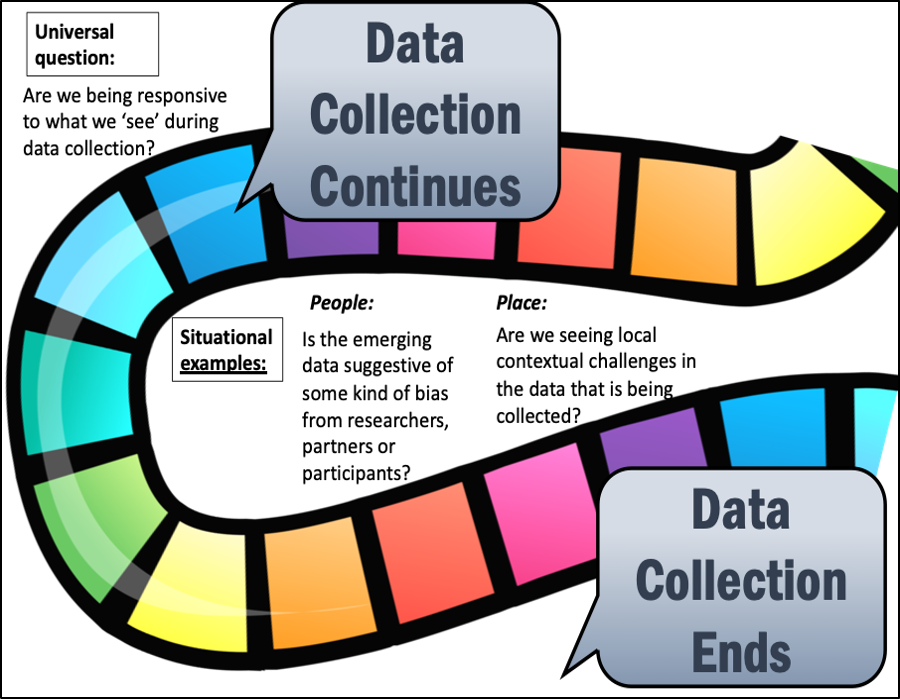|
Stage 7 PROJECT DEVELOPS, DATA COLLECTION CONTINUES AND ENDS
|
Projects typically need to adapt – including in relation to how the data is being collected. This will be impacted by local context and current events. As each project develops, it unfolds in a way that is usually organic. In this part of the research journey, we must be alive to how the project plan is proceeding, to make adaptations to support the successful completion of project aims. |
|||
|
|
||||
|
Being alert to ethical dilemmas |
||||
|
What issues are emerging and how do we need to adapt to ensure ethical outcomes?
|
Supporting considerations:
|
|||
|
Working towards solutions |
||||
|
Place |
People |
Principles |
Precedent |
|
|
In global challenges research, it is normal for the context to change frequently and quickly (due to political, economic instability, natural disasters or even armed conflicts). This may require changes in your research process and amendments to your ethics application and approvals. You should also consider that your research can trigger changes (desired or unwanted) in the community. If you notice this, then name it and respond with urgency. If possible, try to predict this and plan how to respond. |
Continue to cultivate your relationships with local partners, community members and institutions (and be clear on the scope and limits of the relationship since we do not want to generate expectations that we will not be able to meet). Ask for feedback on the data collection process from participants, partners and your own team to how the data collection is going and how the research process is impacting on all stakeholders (including researchers). Use this information to discuss with your team how the process is going and to decide whether changes are necessary. When you have doubt, ask for support (from colleagues, institutions or the ethics committee). When things are not going well it is better not to be alone. Also take some time to see how your team is doing - it is normal for the team to be emotionally affected when working on sensitive issues. |
Be sure your team is following the ethical protocol. Stay tuned (it is easy to get carried away with the ‘doing’). Reflect on how things are going and be flexible. Accept if things go wrong. Be honest with yourself and others (leave the ego aside) and ask for help. |
Find out what is happening in the country or area where you are doing your research. Read the newspapers, watch the news, find out about the changes in the political scene. This can provide helpful contextual information for making better decisions in your research process. Sign up to embassy alerts/travel advisory alerts/etc. Have a ‘Plan B’ for when things don’t work out as intended. Look to what has worked for others as well as what has worked for your own team in the past. |
|
Body
